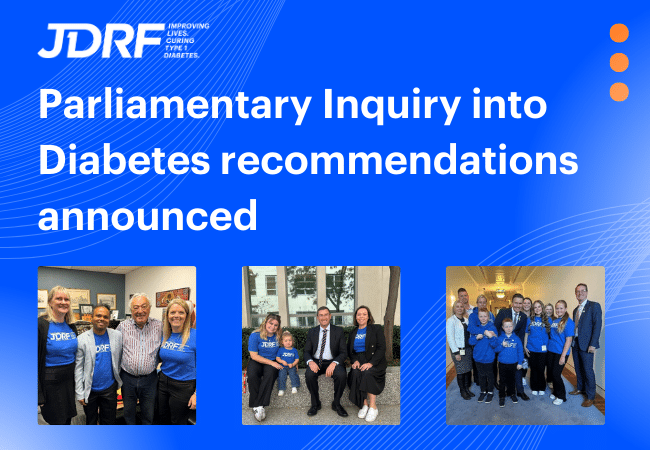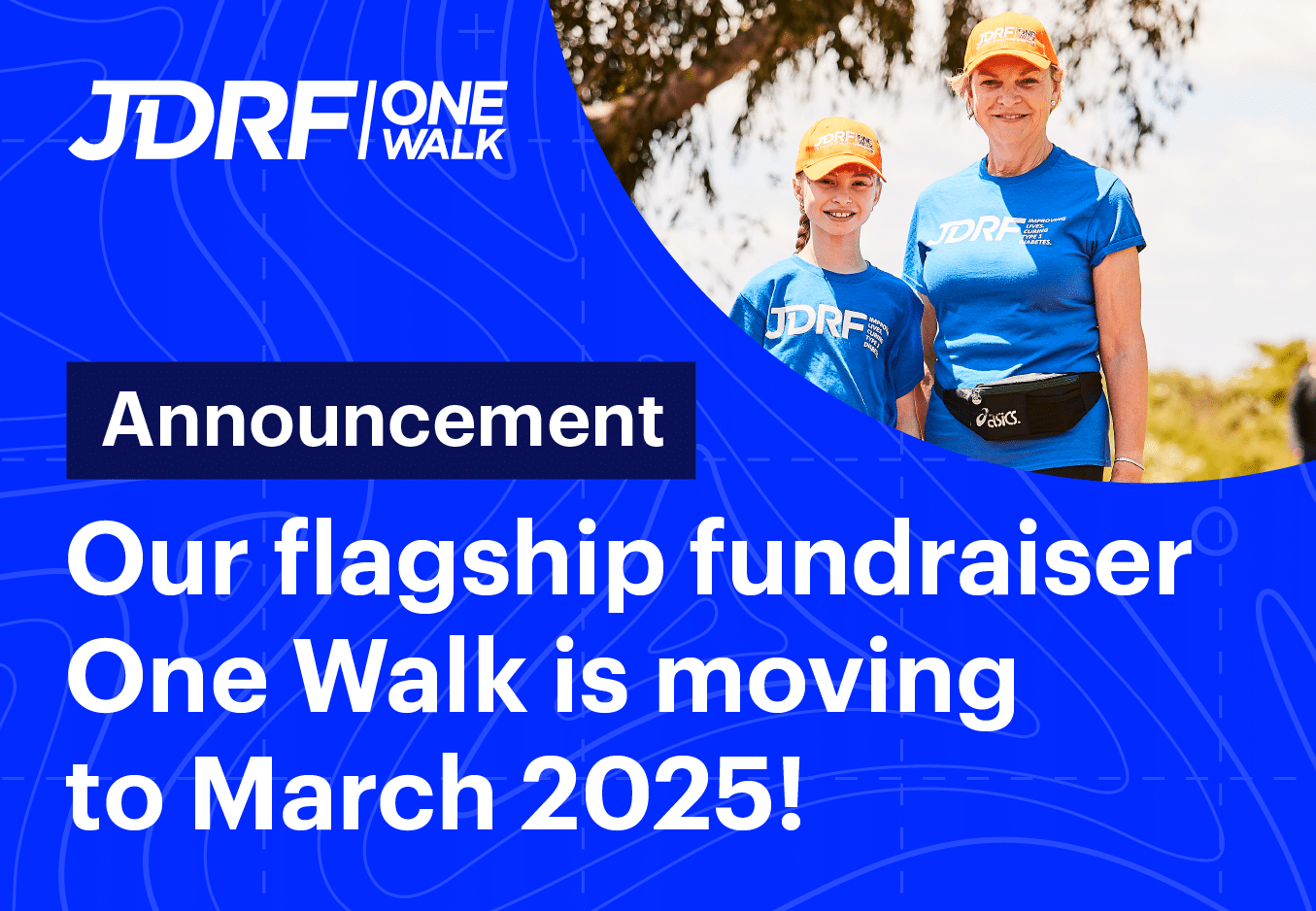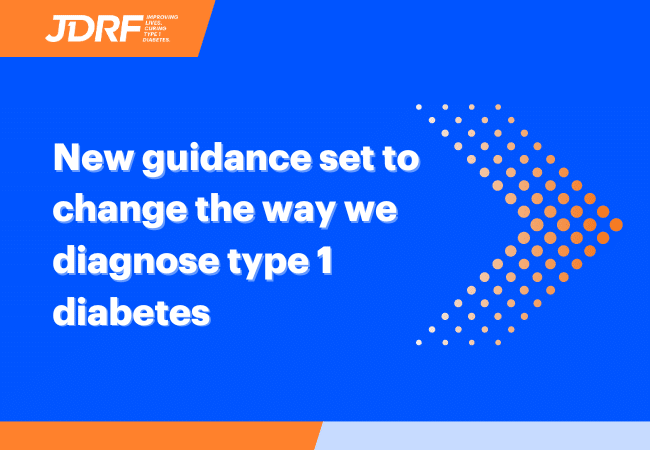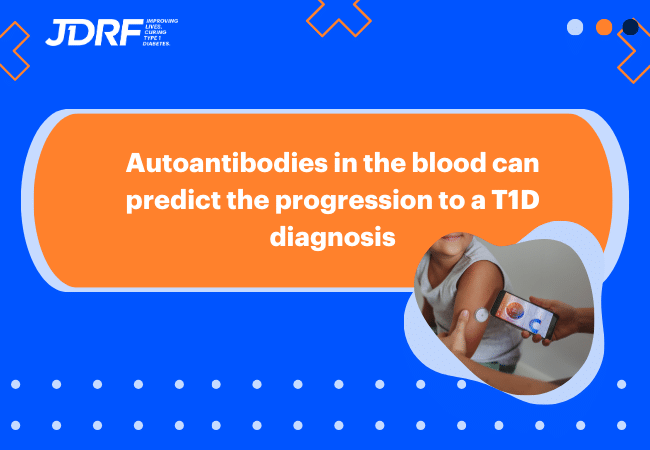Get to know PhD Top Up Scholarship Recipient, David de George
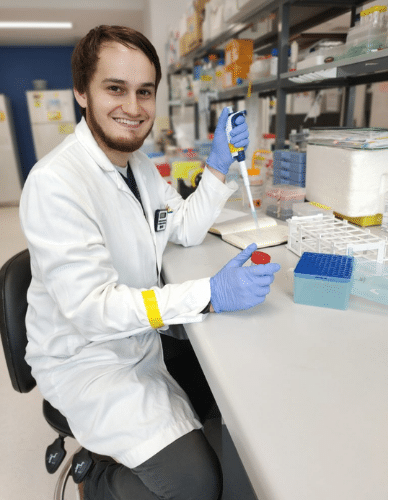
JDRF is committed to supporting the brightest minds in type 1 diabetes (T1D) research whose work is aligned with JDRF’s mission – improving lives and curing T1D.
We are now inviting applications for the 2022 JDRF PhD Top Up Scholarship, which provides additional funding on top of a researcher’s PhD stipend, to further support their work in type 1 diabetes research. We recently spoke with last year’s recipient of the Scholarship, David de George, about what his research involves and how the scholarship has aided his research career thus far.
Read on to find out about Mr de George’s experience, and to apply for the 2022 PhD Top Up Scholarship, click here.
What was your journey to type 1 diabetes research and why did you choose to pursue it?
Throughout my undergraduate degree, I always had a keen interest in immunology. I was particularly interested in the ways the immune system could be modulated to treat disease and was in awe of the great strides that had been made towards this goal in the context of cancer immunology.
I decided to undertake my honours year under Professor Helen Thomas at St Vincent’s Institute, studying the underlying immune processes in type 1 diabetes. It was during this time that I became familiar with the flip side of immunotherapy – modulating the immune system to dampen autoimmunity – as well as the urgent need for such an immunotherapy to protect beta cells in type 1 diabetes. This is what has driven me to continue my PhD in type 1 diabetes research.
What does your research involve and what are some exciting or promising milestones you’ve come across in your work so far?
My project involves studying the underlying immune processes that result in type 1 diabetes, with a specific focus on CD8+ T-cells, which are the immune cells that are ultimately responsible for beta cell destruction.
Our lab is using single-cell RNA sequencing and spectral flow cytometry to study CD8+ T-cells and their regulation in both the gold standard animal model of type 1 diabetes, the non-obese diabetic (NOD) mouse, and humans. During the first year of my PhD, I have used single cell sequencing to demonstrate key differences in the composition of the islet CD8+ T-cell compartment compared to cancer and chronic infection settings.
I and others in my lab have also used single cell sequencing to investigate the impact of interferon-γ signalling in CD8+ T-cells and the complex roles it plays in their regulation. This will contribute valuable knowledge required for the development of a selective and effective immunotherapy for type 1 diabetes.
Why did you apply for the JDRF PhD Top Up scholarship and what impact has this had on the progress of your research?
I applied for the JDRF PhD Top Up scholarship to help support my research in the field of type 1 diabetes. As my PhD is my full-time commitment, the scholarship allowed me to focus on this completely as well as provide additional funds to attend conferences to promote my research and contribute to the wider network of type 1 diabetes research.
For example, I will be attending the upcoming IgV Scientific Meeting hosted by the Australian and New Zealand Society for Immunology to present my work later this year. Additionally, the honour of being awarded this scholarship will help support my future career in type 1 diabetes research.
What is a piece of advice you have for other PhD students focusing on type 1 diabetes research?
My advice would be to do it! I believe there is a tendency to overlook type 1 diabetes research, especially with the success of insulin as a treatment. However, there is still no cure for type 1 diabetes and late diagnosis makes protecting beta cells difficult.
However, there are a lot of new, emerging, and exciting technologies and techniques that can be applied to this, whether your research is focused on early detection, immunotherapy, beta cell replacement, or any other aspect of type 1 diabetes.
What do you hope to achieve in the future for type 1 diabetes research?
I really hope to contribute to the foundations of and eventual implementation of an effective and targeted immunotherapy for type 1 diabetes. Even with early detection and beta cell replacement, ongoing autoimmunity will likely remain a barrier to halting the progress of beta cell destruction.
I am only likely to be a small piece in this achievement, however, I believe this goal is important for millions of individuals currently living with type 1 diabetes and the many more who will have to live with it in the future.
We loved hearing about David’s research in underlying immune processes leading to T1D and the passion he has towards achieving change for those living with the condition.
If you’re currently completing your PhD in type 1 diabetes research and would like to be considered for the 2022 PhD Top Up Scholarship, please apply here. Applications close 2nd May 2022.

